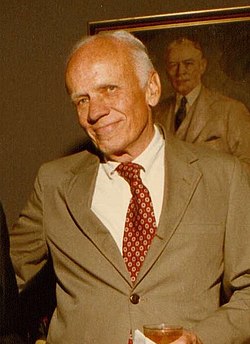Walker Percy Quote
At the end of an age, the denizens of the age still profess to believe that they can understand themselves by the theory of the age, yet they behave as if they did not believe it. The surest sign that an age is coming to an end is the paradoxical movement of the most sensitive souls of the age, the artists and writers first, then the youth, in a direction exactly opposite to the direction laid down by the theory of the age.
Walker Percy
At the end of an age, the denizens of the age still profess to believe that they can understand themselves by the theory of the age, yet they behave as if they did not believe it. The surest sign that an age is coming to an end is the paradoxical movement of the most sensitive souls of the age, the artists and writers first, then the youth, in a direction exactly opposite to the direction laid down by the theory of the age.
Related Quotes
About Walker Percy
Walker Percy, OblSB (May 28, 1916 – May 10, 1990) was an American writer whose interests included philosophy and semiotics. Percy is noted for his philosophical novels set in and around New Orleans; his first, The Moviegoer, won the National Book Award for Fiction.
Trained as a physician at Columbia University, Percy decided to become a writer after a bout of tuberculosis. He devoted his literary life to the exploration of "the dislocation of man in the modern age." His work displays a combination of existential questioning, Southern sensibility, and deep Catholic faith. He had a lifelong friendship with author and historian Shelby Foote and spent much of his life in Covington, Louisiana, where he died of prostate cancer in 1990.
Trained as a physician at Columbia University, Percy decided to become a writer after a bout of tuberculosis. He devoted his literary life to the exploration of "the dislocation of man in the modern age." His work displays a combination of existential questioning, Southern sensibility, and deep Catholic faith. He had a lifelong friendship with author and historian Shelby Foote and spent much of his life in Covington, Louisiana, where he died of prostate cancer in 1990.
